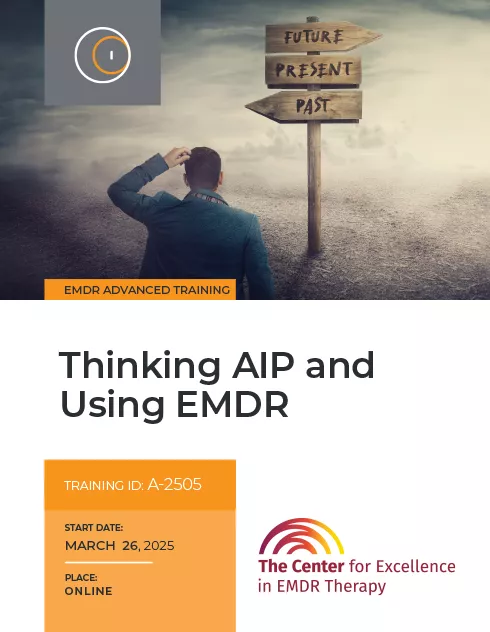Thinking AIP and Using EMDR - March 2025

March 27, 2025: 11:00 am - 3:30 pm ET
March 28, 2025: 11:00 am - 3:30 pm ET
— Wednesday, Thursday, Friday —
Lisa Ferrel
admin@emdrtherapy.com
EMDR psychotherapy is more than symptom relief. It's about helping our clients grow and change.
This course is for all EMDR clinicians who want to strengthen their case conceptualization skills and be able to zoom in and out between the big picture and the moment to moment to ensure optimal treatment results. You will be able to:
- Develop a working understanding of the Adaptive Information Processing (AIP) model of EMDR therapy
- Identify the three clinical themes of Responsibility, Safety and Choices to better understand the client’s difficulties
- Distinguish between the client’s symptoms and their problem
- Learn how to work with your client to develop a mutual understanding of the root causes of their difficulties
- Explore how a client's sense of belonging may have been impacted by their formative attachment experiences
- Identify one or more adaptations the client has developed in response to their problem
- Develop an AIP-informed treatment plan using the mutual understanding of the client's problem
- Identify and apply specific EMDR treatment protocols based on client and clinical variables
- Identify and strengthen adaptive responses to present-day life demands
- Identify one or more ways to help the client understand their problem through an AIP lens
You will walk away from this interactive course with a practical understanding of AIP case conceptualization and how that informs EMDR therapy over the course of time where foreground becomes background, keeping the work dynamic and mutually elaborated between therapist and client.
Interactive Training Format
You will be studying cases with Deany in the large group and then discussing your ideas with your fellow colleagues in small groups that will be moderated by a Facilitator. There is no supervised practice in this course as the focus is on developing case conceptualization skills and dynamic treatment planning.
Informational Brochure
